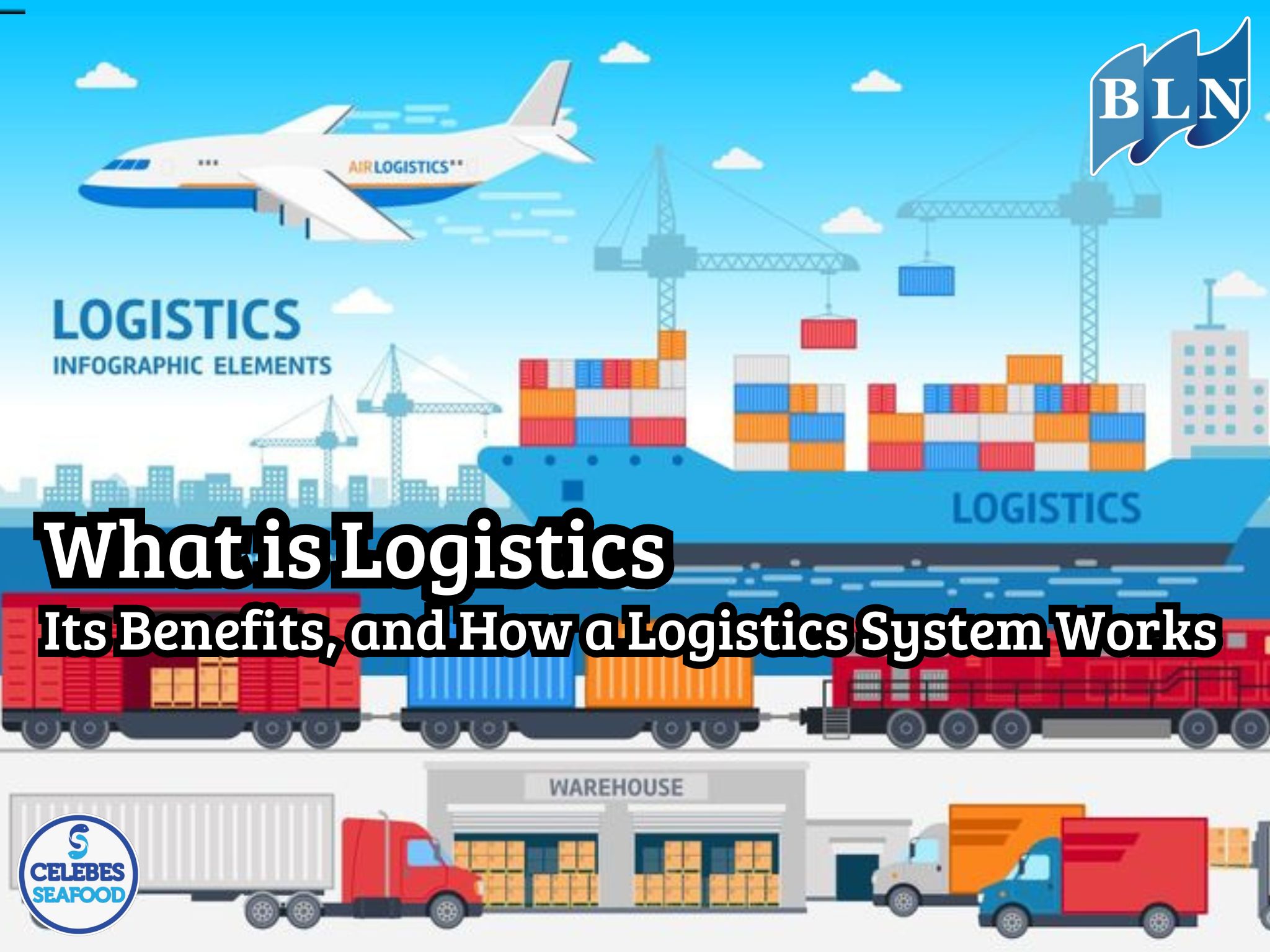What is Logistics, Its Benefits, and How a Logistics System Works
By. Rani - 21 May 2025
lautnusantara.com The term "logistics" is likely one you hear often, whether due to the rise of online shopping platforms or its prevalence in event committees and the business world.Generally, logistics refers to the science or art of storing, distributing, maintaining, and disposing of various goods or specific tools.
What is Logistics?
The word "logistics" originates from the Greek word "Logos," meaning ratio, calculation, speech, reason, and oration. It can be said that logistics is related to management science as it involves interconnected activities carried out in stages.
Broadly speaking, logistics is a management science that deals with the processes of planning, executing, maintaining, and supervising the movement of goods, services, energy, or other resources from one place to another efficiently to achieve specific objectives.
Read Also : Amplang crackers made from mackerel fish
Objectives of Logistics
Every logistics activity naturally has specific goals. One of the primary objectives of a logistics system is to obtain goods, at the right time, in the right quantity, in the right condition, and at an affordable cost. Most importantly, it aims to generate profit for the logistics service provider.
Other logistics objectives can be categorized into three parts:
- Operational Objective: This involves providing sufficient goods to meet needs for the next few days. It also aims to minimize product scarcity, which is why logistics companies typically have their own warehouses.
- Financial Objective: The financial goal of logistics activities is to maximize profit and minimize losses. Logistics often offers more affordable shipping compared to other delivery methods.
- Security Objective: This final objective ensures that goods shipped are safe and arrive undamaged when received by the recipient.
Benefits of Logistics
Besides its objectives, logistics offers significant benefits for a business:
- Meeting Needs: Logistics facilitates business needs planning as the system has precise schedules and arrangements, ensuring needs are met, especially concerning the delivery of essential goods.
- Goods Storage Facility: Logistics activities are commonly associated with goods storage. Logistics providers offer their own warehouses with organized schedules for incoming and outgoing goods.
- Maintaining Goods Quality: Goods stored in logistics warehouses are typically checked periodically to ensure their quality remains excellent. This also minimizes the risk of damaged or defective items.
- Ease of Budget Management: Since all goods entering and leaving a logistics warehouse are meticulously recorded, the shipping process can be faster and more affordable.
Functions of Logistics for Business Continuity
Logistics plays a crucial role in business, including:
- Inventory Management: Logistics assists in managing inventory, including procurement, storage, and distribution. Efficient management helps companies avoid stockouts, which can lead to lost sales, or overstocking, which can erode profits.
- Goods Distribution: Logistics ensures goods reach customers quickly and efficiently. This involves planning delivery routes, selecting appropriate transportation methods, and coordinating between various parties in the supply chain.
- Cost Control: Logistics management can help control operational costs, including transportation, storage, and order processing expenses. By optimizing logistics processes, companies can reduce costs and increase profits.
- Improved Customer Service: An efficient logistics system can enhance customer satisfaction by ensuring timely delivery and good product quality. This can help build customer loyalty and improve the company's reputation.
- Increased Operational Efficiency: By utilizing appropriate technology and management strategies, logistics can improve overall operational efficiency. This includes using supply chain management software, data analytics, and process automation.
- Risk Management: Logistics also helps manage risks associated with the supply chain, such as supply disruptions, regulatory changes, or natural disasters. By having backup strategies and risk mitigation plans, companies can reduce the negative impact of unforeseen events.
Understanding Logistics Systems
Within logistics, there are several key components to consider in a logistics system:
- Logistics Facility Location: Before choosing the type of transportation to use, companies carefully consider the location of logistics delivery. In this component, companies also need to plan other aspects, such as stock availability, recipients, factories, and various other factors.
- Transportation: The next component to consider in a logistics system is transportation. This means companies must select the appropriate transportation method for delivering logistics. Additionally, companies need to estimate costs and consider potential future risks. Therefore, factors such as cost, speed, and consistency of delivery can affect the quality of transportation services.
- Inventory Procurement Management: The next component in a logistics system is inventory procurement management, which is a crucial factor in a company's structure responsible for regulating inventory levels. The primary goal of this inventory procurement management is to maintain the quantity of goods in line with established service targets.
- Communication: In a logistics system, communication is an essential element that must be maintained. With communication, all logistics processes can run more smoothly and systematically. This helps avoid miscommunication between activities or logistics components. Unsmooth communication can lead to inventory shortages in the process.
- Storage: Another important component in a logistics system is storage. In this context, storage covers all aspects of logistics operations, including packing, movement, and packaging. All these aspects are interconnected with the flow of inventory, which is crucial for meeting the needs for specific products or materials.
From the explanation above, you must now understand the importance of logistics in the goods delivery process. From planning to delivery, everything can be done well. Most importantly, it can facilitate your goods distribution, as it can be done smoothly.
If you are interested in our product CALAMARI WHOLE ROUND, CUTTLEFISH WHOLE ROUND please do not hesitate to contact us through email and/or whatsapp.
 Extreme Deep-Sea Vent Inhabitant.jpg)







